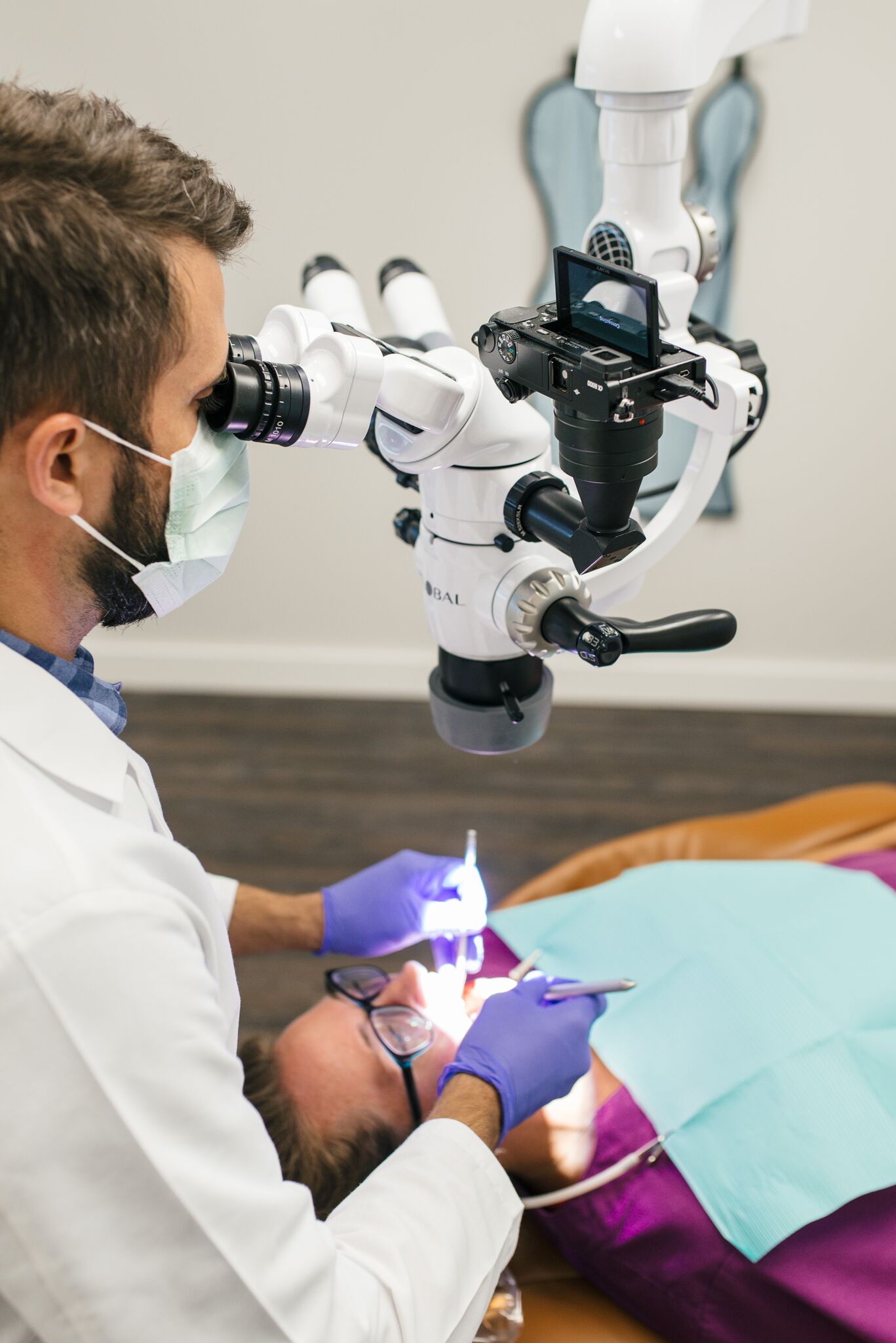

What is an Endodontist and what do they do?
Endodontists are dentists who specialize in maintaining teeth through endodontic therapy -- procedures, involving the soft inner tissue of the teeth, called the pulp. We are dental specialists, much like oral surgeons or orthodontists, that have received years of additional training at a university to excel at one area of dentistry. All dentists are trained in diagnosis and endodontic therapy. Some teeth can be especially difficult to diagnose and treat which is often why you may have been referred to an endodontic specialist.
We spend our entire career doing essentially 3 things; diagnosing oral pain and determining it's source, performing root canals, and performing endodontic surgery when necessary. Many patients come just for a consult, and every patient that comes into the office gets a thorough exam to:
1. Determine the source of your pain or infection, and verify that the tooth actually needs root canal treatment.
2. Explain your options and the procedure.
What Happens During Endodontic Treatment? What is a Root Canal?
A local anesthetic will be given. A thin sheet of latex-like material called a "rubber dam" will be placed around the tooth to isolate it. (We are a latex free office). This keeps the tooth as sterile as possible during treatment. We use a very quiet electric drill (instead of air driven) and typically spend less than 1 minute drilling on any given tooth. We then remove the infected or inflamed tissue from the tooth and place a medicament in the canals. You then return 2-4 weeks later for us to remove the medicament and place a permanent root canal filling material into the roots. Your dentist will place a final restoration on the tooth to keep it strong and sealed up to prevent recurrent infection or problems.
Root canal, or endodontic therapy, has a very high degree of success. Most initial treatments have an expected success rate over 95% with no further intervention. Retreatment and Endodontic surgery have a very high success rate as well, but case selection is very important. We will discuss with you the chances of success before any endodontic procedure to help you make an informed decision. If a root canal fails, many times you still have options to save the tooth.
Why Do I Need a Root Canal?
The need for a root canal is almost always caused by decay and/or inflammation. By the time you arrive at our office, the nerve is either inflamed (think sunburn) or infected (think abscess). Often times, a tooth may become symptomatic after a filling or crown is done. This is not the dentist's fault! The dentist must remove all of the decay in order to place a restoration. If the tooth becomes painful afterwards, it was already a foregone conclusion. Whether the filling was done now, later, or not at all a root canal would be needed.
What About Cracked Teeth?
As Endodontists, we see a lot of cracked teeth. Oral pain from cracked or fractured teeth can often be difficult to pinpoint. Because of the vast network of nerves in the area, the pain of a damaged tooth often is felt in another tooth, in the head, neck, or ear. An endodontist is a specialist in diagnosing and treating this type of pain. Cracks do not always stem from a single event and are more often the result of attrition and decades of use. We may be able to save these teeth, but often a CBCT scan, microscopic exam, or exploratory treatment may be necessary to help you make an educated decision. Cracks in teeth are much like those in your car windshield; they will never get smaller or go away. It is important to catch them before they have done too much damage, perform root canal treatment, and have a crown placed to act as a band to prevent further propagation of the fracture.
We Treat Traumatic Injuries.
Baseballs, bikes, car accidents, or dance floors. We have seen it all. Pulp damage is sometimes caused by a blow to the mouth, and the endodontist specializes in treating these traumatic injuries. For example, trauma to a child's permanent tooth that is not fully developed can cause the root to stop growing. A procedure called apexification stimulates bone to be deposited at the end of the root which makes it possible to then save the tooth through a root canal procedure. An endodontist is specially trained in procedures for replanting teeth that have been knocked out of their sockets. Other specialized procedures, such as apexogenesis or pulpal regeneration, may be employed depending on the specifics of each case. The type of case can vary dramatically base upon the timing of the injury, the age of the patient, the type of injury, and any previous care.










We're here to help.

